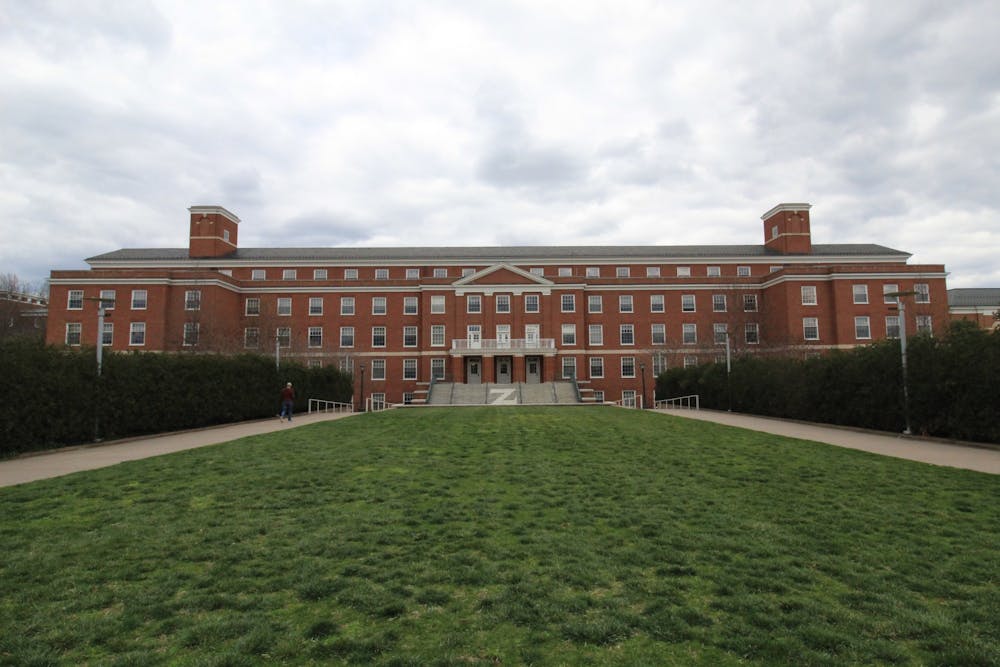For the first time in two years, the University's Summer Language Institute will be held fully in-person. It will run June 21 through Aug. 12 and offers intensive eight-week courses in seven languages — Spanish, Latin, German, French, Russian, Arabic and Chinese.
Costs range from $5,076 for the non-credit option to $18,624 for an undergraduate out-of-state student. Applications for the summer 2022 program — which require a transcript and letter of recommendation — are open to anyone who is a junior in high school or older.
Caren Freeman, the Summer Language Institute coordinator, called the program one of the University’s “hidden gems.” For undergraduate students, participation in the Summer Language Institute can satisfy the four semesters of a foreign language required by the College and many participants also use the program to prepare to study abroad, become better equipped for their jobs or to better perform graduate research.
Third-year College student Michael Silek originally chose to participate in the Russian SLI class during summer 2020 because it opened up more room in his schedule for other classes. After having a very positive experience and learning a lot, Silek is now a Russian major.
“[The program] was extremely immersive and intensive, and I felt like I learned a lot in a really short period of time,” Silek said.
The Latin, German, French, Spanish and Russian programs cover the equivalent of four weeks of college-level language class, thereby completing the intermediate-level courses. Arabic and Chinese are both offered in two eight-week programs — one to complete the first two semesters of college-level courses and the other to complete the second two semesters.
Second-year College student Caitlyn Beckham took the Chinese SLI class in summer 2021 after feeling that she did not gain a strong enough foundation in introductory Chinese at the University.
“I honestly didn't do particularly well in picking up the foundation, the really basic stuff you need to know if you want to go any further,” Beckham said.
The past two summers, the program operated virtually, a format which Freeman felt still proved successful for language learning.
“Foreign language study in particular has really benefited from online modality, in fact, so much so that our Chinese program for the first time is experimenting with every day of the week having the option of whether to come in person or remain online,” Freeman said.
Beckham participated in the SLI when the classes were virtual and expressed that the professor’s use of breakout rooms to facilitate more personal practice was very beneficial.
“Because we had tutors working with our class who were native speakers and we kept meeting with the tutors during class and after class so I think that was a really good way [aspect] that was worked into zoom,” Beckham said.
While Silek also participated in the program virtually, he still felt that the professors and teaching assistants worked very hard to provide a well-rounded experience.
“[The class] really connected us with what it means to learn a language from multiple different aspects and class participation, especially during the speaking portion, was always very encouraged,” Silek said.
Freeman explained that the Summer Language Institute hosts three events during the eight weeks to bring students from different classes together and share what they have learned.
“Students always express interest in getting to know students in the other languages, so there's also a feeling that goes across the Language Institute that we're part of something bigger than just our language,” Freeman said.
The class size averages 10 students, which further allows for tight-knit communities to form between faculty and students.
“There's a small number of students and faculty team members spending long hours everyday together, and very deep bonds get formed,” Freeman said.
Beckham expressed that it can be hard to balance multiple classes at once, especially because learning a foreign language requires a lot of time. The SLI allowed her to focus the necessary time to master the basics of Chinese.
“[Since] that's the only thing that you're studying and you do it every single day it just makes it a lot easier to pick up the foundation,” Beckham said.
Each class requires six to seven hours of in-class instruction five days a week in order to fully immerse students in the language. On-Grounds housing is available for anyone who is not a high school student.
“It's a very compressed, intensive, demanding [program] but extremely rewarding,” Freeman said. “In my view, [it’s] probably the most effective way to get the fundamentals of a new language under your belt.”







